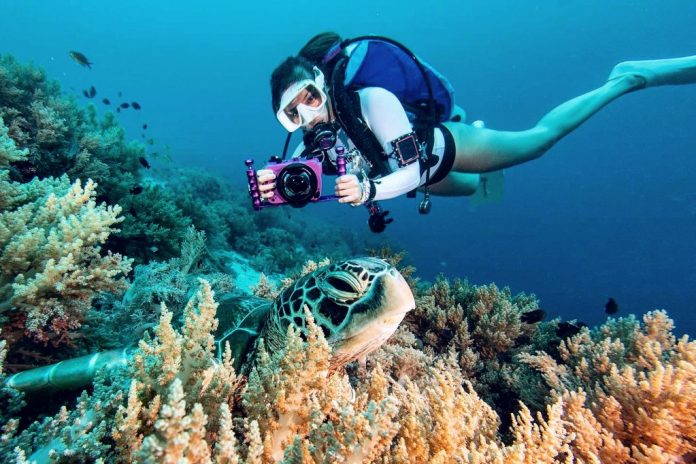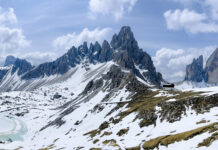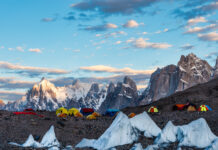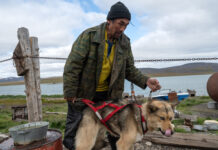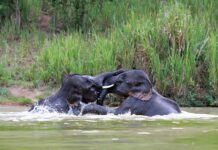Interviewed by Elizabeth Lim
ASIAN Geographic recently caught up with budding ocean conservationist Vanessa Vergara on how she made the decision to leave her career in the PR world, to go after her passion for marine conservation, and shares with us what her vision for the future looks like.
AG: Tell me a little bit more about yourself. How did you find out about your love for the ocean?
VV: Well, I have always been and still am, absolutely obsessed with the ocean and growing up, I’ve always wanted to be a marine biologist, but you know life happens and when I reached the age where I had to start making adult decisions and life choices, I ended up taking a business course in college (with a marketing and PR background) instead. I also opened up several businesses during that time, but I still kept getting drawn back to the ocean and the moment I started scuba diving, I was hooked, and I just kept training and training – you know when you get your open water you just want to move on and get your advance.
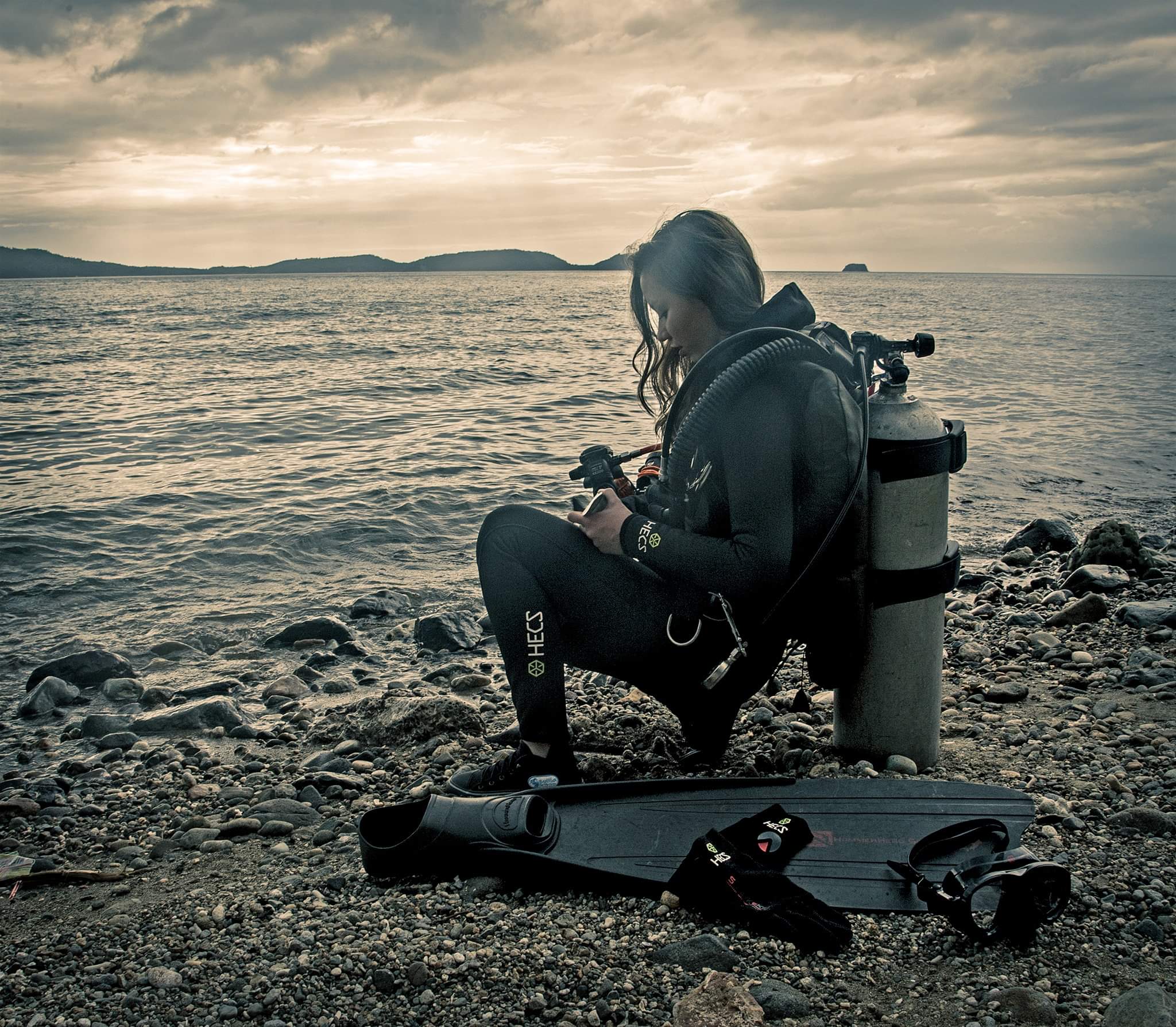
AG: I understand that before pursuing ocean conservation, you were working in public relations, could you share with me a little bit more about that and how you eventually decided to get into marine conservation?
VV: I was doing PR, events and marketing for Estee Lauder companies and basically for beauty and fashion and it was really fun because I got to do shoots and go for product launches but the more I did it, the more I missed the ocean. I would go for these launches and then leave late at night around midnight, drive overnight to Anilao where I would sleep, and then go for training the next day. It was what I looked forward to. I enjoyed my career for sure, but when I reached the age of 25, I went into a quarter-life crisis thinking and questioning if this was the right job and if this was what I wanted. Eventually, I worked up the courage and decided to leave my job to pursue ocean conservation, and it all just fell into place.
“The organisation that I worked for at that time – Reef Check – needed restructuring and they asked me if I were interested in taking on the role in the Philippines and I thought this is perfect! I had just left my job and it was meant to be – the ocean really called!”
AG: So, what does marine conservation entail for you? What is the nature of your job and how long have you been doing this?
VV: So, I’ve been doing this for three years now, and in that time, I realised how lucky I am that I have had this experience in the corporate world because I use a lot of what I used to do, to create the structure for the non-profit conservation group (Reef Check Philippines) I work for. People think we can just leave all the work to the scientists and conservationists to solve the problem but right now, we’re so pressed for time, fighting against the effects of global warming and the use of plastic that you need every citizen involved in this. This is where marketing and PR come in because you’re able to go out and inspire people and empower them by breaking it down simply and letting them know that they can do something to help as well.
AG: Was it scary for you to make the career switch?
I always say this by Steve Jobs: “The people who think they are crazy enough to change the world, are the ones that do”
Growing up, it was ingrown in me that once you grow up, you have to get a (stable) career and then once you do so and you’re stable in your life, you get married, retire and then you can go into conservation. So, it was really scary to say, “ok bye bye career” and then do something out of the ordinary and so many people told me that I was crazy to let go of my stable job to go into this but look what happened now. You just gotta daydream about that idea, and even if it sounds crazy but feels right for you, just take the courage and it will work out.
AG: You’re currently on the team for Reef Check Philippines, could you share with me a little bit more about your organisation and what you do?
VV: Reef Check is a global organization that is founded in more than 100 countries around the world and in the Philippines, we’re specifically protecting the reef, and the corals of our shores, and it’s really led by scientists. We go to reefs and corals around islands and shores and do a reef survey check and a check up on them – almost like a doctor, and after the survey, we can identify why the reef is dying.
My job is to basically bridge science and conservation and then use the information we gather, to teach stakeholders such as everyday citizens, resort owners, local communities, as well as work with local governments to protect the reefs.
AG: Are there any projects that you are currently working on that you could share with us?
VV: We are now working towards more of action, where we go to different communities and teach the people who live beside the reefs why it is important to protect the reefs because, even if Reef Check team goes to places all over the Philippines, teaching everyday citizens is the most effective way of inspiring them to make a difference.
Additionally, we are looking to launch a children’s book in the summer which will touch on subjects such as how to go scuba diving, and the importance of the creatures in the reef, as well as including educational materials that are best suited to the grade level of the child. Most importantly as well for us, is to educate them on how to reduce single-use plastic and provide them with alternatives to reduce the harm it brings to the environment.
AG: What was the greatest challenge for you whilst you were getting into conservation?
VV: The dive industry (and conservation world) is all mostly men who are all a lot older and mostly retired already, so really, coming in at 25, my greatest challenge really revolved around my age and my gender. Every time there was a project or meeting that involved a program underwater, I had to always prove myself that firstly, I was capable, and I could take care of myself underwater. They would doubt and sometimes wouldn’t believe that I was a dive instructor, so I had to keep proving myself and pushing because a lot of the time they think “oh she’s just here for now, maybe a few months and then she’ll move onto another charity when she gets bored” but after 3 years, I’m still here!
AG: Any iconic marine conservationist that you look up to? If you have the opportunity to work with other conservation groups, do you see yourself just focusing on corals and reefs or are you looking at other aspects – locally or internationally?
VV: Locally, I really look up to Dr AA Yaptinchay, who started Marine Wildlife Watch in the Philippines by himself on Facebook, posting every morning good news or bad news on marine animals in the Philippines and the more he posted, the greater his following grew. It’s incredibly inspiring how he went from just one Facebook page to now writing laws in the Philippines and even pushing the senate and congress to sign bills to save the sharks in the Philippines.
I also definitely do dream about being able to work with big organisations such as Ocean Quest and Sylvia Earle’s organisation Mission Blue but right now, I would stay in corals and reef conservation because they are the foundation of life in the ocean and are very much the underdogs. Very few people work on coral conservation and now they’re disappearing so fast so as much as I’d love to work with a bigger organisation, the only time I would do so is when I feel confident that the corals and reefs are in good hands and in a good place, especially in the Philippines.
AG: What’s next for Vanessa Vergara?
VV: Wow I’m really not sure especially with Covid still around but the goal hopefully, is to spend more time in the different project areas and create local groups to continue my work for me especially when I can’t send someone from the team or be there. I want to just empower different parts of the Philippines to help out and not just rely on the organisation for conservation efforts! During the lockdown, I really learned that I want to empower people living on the coast, as well as those in the city areas, and if I can get the people who don’t even touch the ocean, to come and see the ocean, be inspired and to help in conservation work, that’d really be great.
AG: What’s your vision for the future and if you could speak to the younger generation or even the generation right now about marine conservation, what would you say to them or advise them on?
VV: We’re in a really unique time of our lives where it’s not too late to change what’s happening in the world but we’re almost there. I always ask, “do we want to be the last generation to find Nemo or have really nice beaches or have fresh seafood?” because if we continue this way, by 2050, 90% of what we love will be gone and it’s empowering that our generation right now, has the potential to make the change.
With technology, we can do anything, and it really gives people a voice and especially in the past, people said conservation wasn’t cool and having a metal straw with you, people would think you’re weird. Now, more people are talking about it and conservation has become the “new cool” and I want to empower people. I mean I’m literally working on conservation and PR via the internet in the middle of the ocean and if we have the drive and inspiration to do something, maybe just maybe, by 2050 we can avoid the loss of everything.
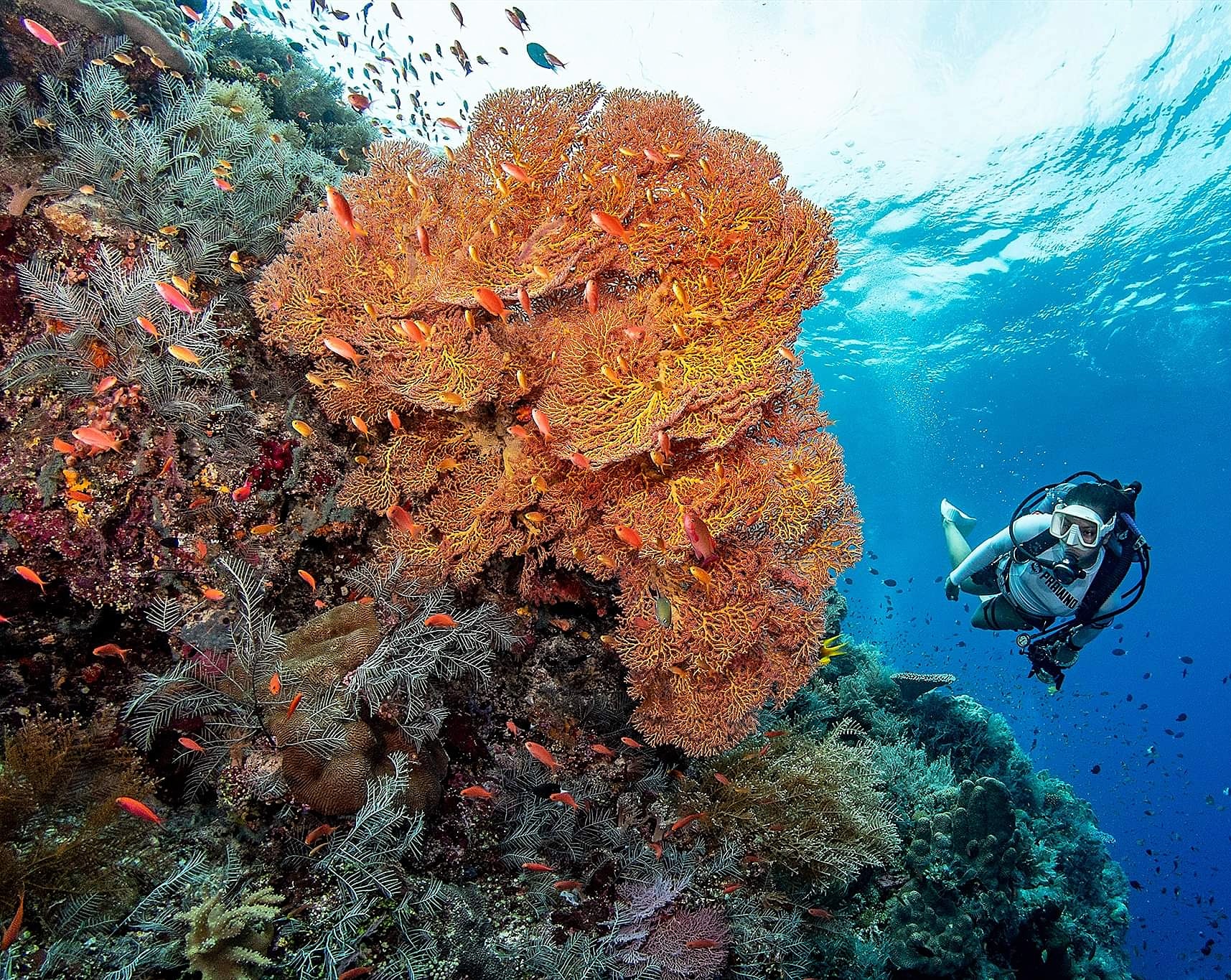
AG: Lastly, is there any tips or encouragement that you would like to give to any mid-life crisis office worker or those facing a quarter-life crisis, for them to be brave and brazen to jump into the life of conservation? What would you tell them?
VV: I’d say to them – it is possible, don’t be afraid. For anyone looking for that career switch, you really need to take a step back first and figure out, is this really what you want to do, and if it is, then you can definitely make it work. My greatest challenge when I was doing this, was really myself. I had to learn how to balance my time because I had to give up a lot of social events and personal time, to try and make two things work – my career and my passion.
I’m telling everyone that it is possible, and if you really believe and are determined, once you’re ready the world will you give you signs, and just rip off the band-aid and go for it. Like I said before, the quote I always go back to when I think of this journey I was on, is that those who are crazy enough to change the world, are the ones that do and that’s what people have to think about because that’s how you’re going to pave the road for yourself.
ASIAN Geographic would like to thank Vanessa Vergara for being a part of this interview. You can find her at her Instagram and Facebook!
Photo credits: Vanessa Vergara and Squires Bingham Sports, www.squiresbinghamsports.com


